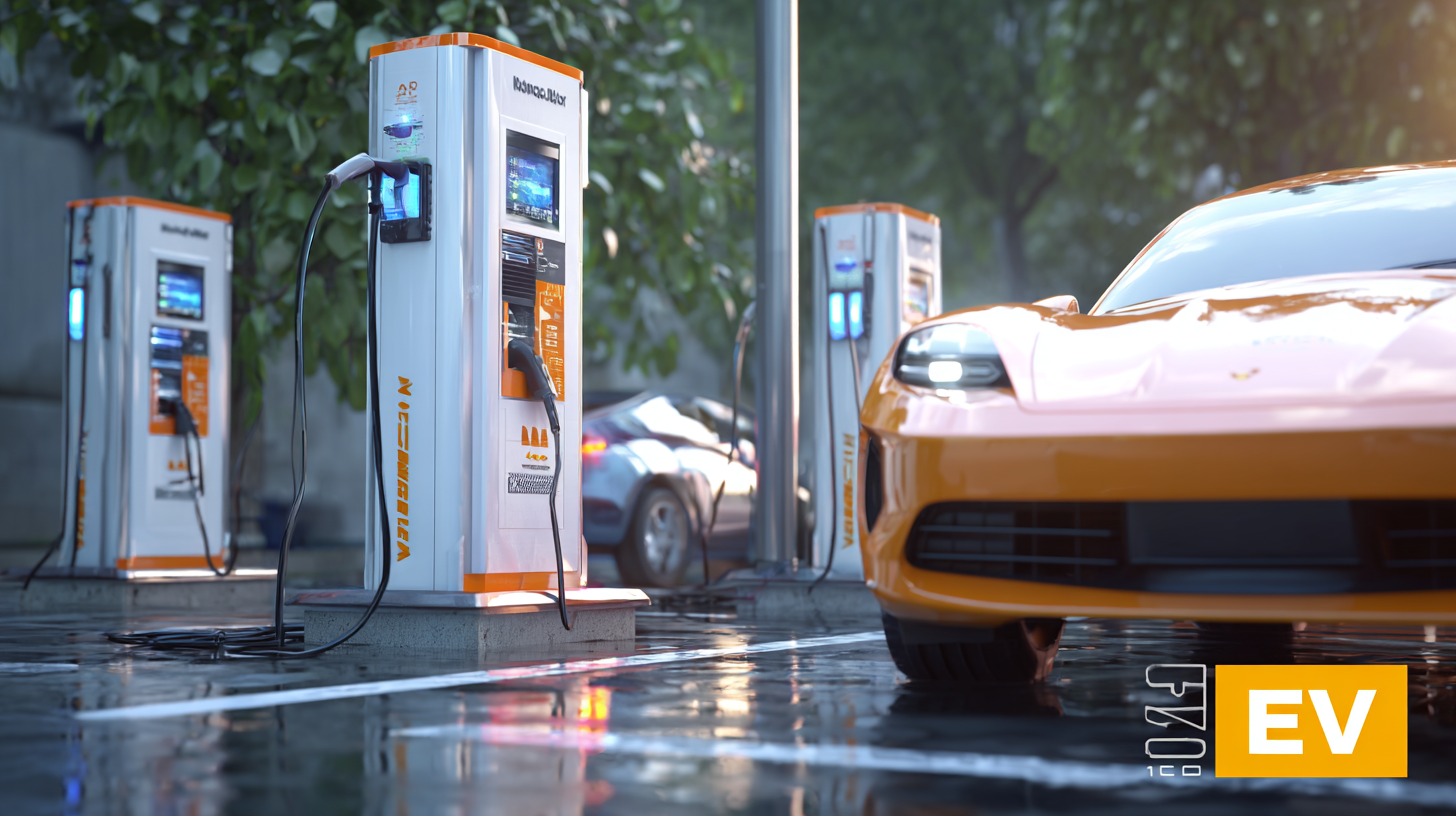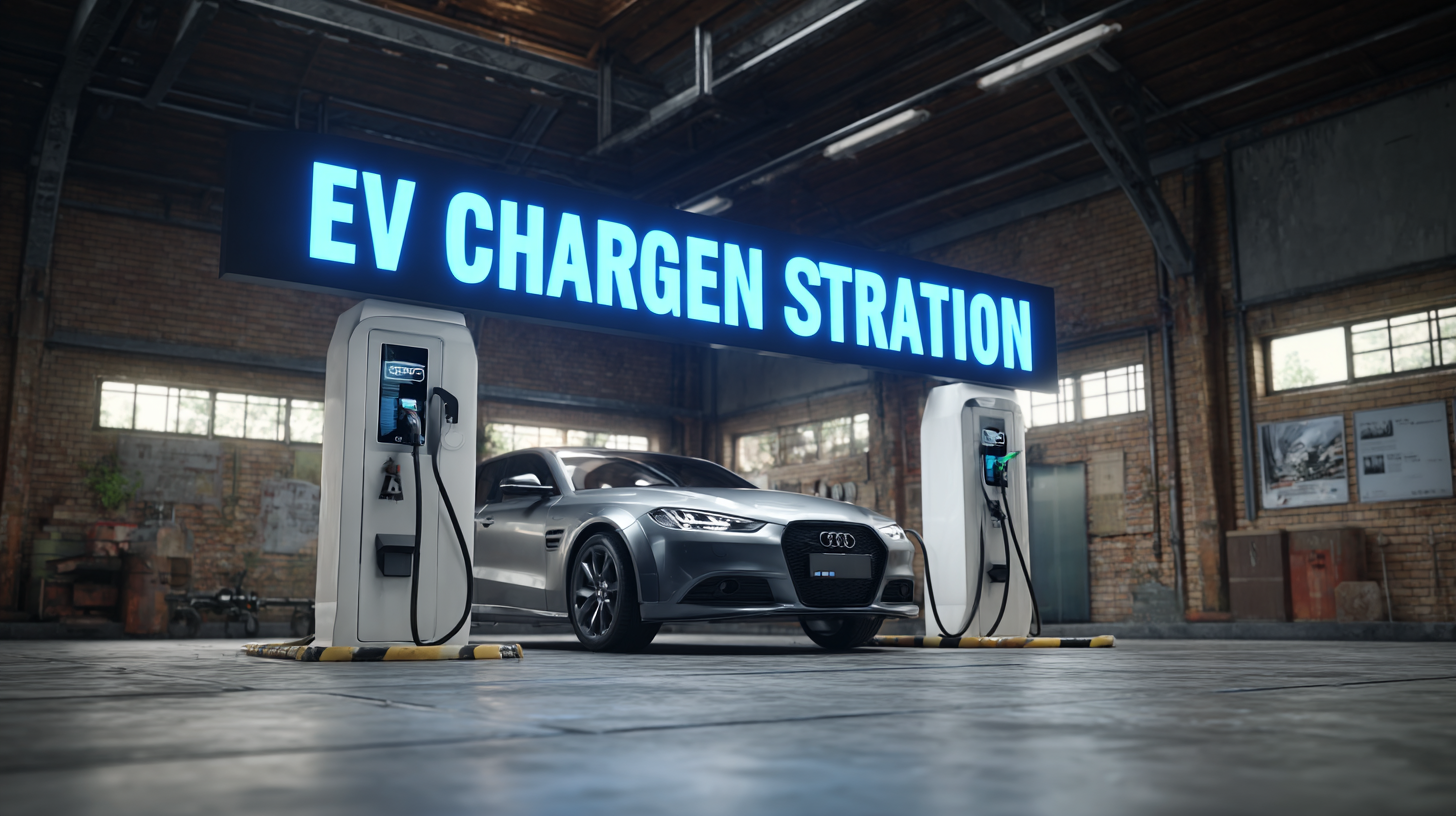
The Future of Electric Vehicle Empowerment with Best EV Charging Station
The rapid evolution of electric vehicle (EV) technology is significantly transforming the automotive landscape, and at the center of this shift is the importance of robust EV Charging Stations. According to a report by the International Energy Agency (IEA), the number of publicly accessible charging points worldwide exceeded 1.8 million in 2020, with projections indicating that this number could reach 40 million by 2030. This growth is driven by increasing consumer demand for sustainable transportation solutions and supportive government policies promoting electric mobility. As we look toward the future, the strategic development of EV Charging Stations will be crucial in overcoming range anxiety and supporting the widespread adoption of electric vehicles. Key industry applications, implementation of digital solutions, and innovative designs will empower users and ensure a seamless charging experience. In this blog, we will explore compelling case studies, supported by numerical data, that highlight the transformative role of EV Charging Stations in fostering a sustainable automotive ecosystem.

Emerging Trends in Electric Vehicle Charging Technologies
The landscape of electric vehicle (EV) charging technologies is undergoing a significant transformation, driven by emerging trends that promise to revolutionize the way we think about energy consumption and efficiency. One of the most notable advancements is in wireless charging infrastructure, projected to surpass USD 31.96 billion. This technology is gaining traction as consumer demand for seamless and convenient solutions grows, enabling EV owners to charge their vehicles without the hassle of plugging in.

In addition to wireless solutions, the race for ultrafast EV charging, particularly in regions like China, is reshaping global standards for charging times. Innovations in ultrafast technology are making it possible to charge vehicles in mere minutes rather than hours, enhancing the usability and appeal of electric vehicles. Meanwhile, developments in battery technology are also crucial, as new innovations have the potential to disrupt traditional markets and accelerate the transition to electric mobility. The integration of vehicle-to-grid (V2G) systems is another pivotal advancement, allowing EVs to not only draw power but also contribute back to the grid, fostering a more resilient and sustainable energy ecosystem. This interconnected approach paves the way for a brighter, electrified future.
Key Features of the Best EV Charging Stations in Today's Market
As the electric vehicle (EV) market continues to expand, the significance of high-quality charging stations becomes increasingly evident. The best EV charging stations are designed with user convenience and efficiency in mind. Key features that set them apart include rapid charging capabilities, which can significantly reduce downtime for drivers. Stations equipped with Level 3 fast chargers can deliver substantial power in a short time, making long-distance travel more feasible for EV owners.
Another essential consideration is accessibility. The best charging stations are strategically placed in locations that are easy to reach and are equipped with multiple charging points to accommodate various vehicles simultaneously. Furthermore, user-friendly interfaces and real-time updates on charging status enhance the overall experience. Integration with mobile apps allows users to locate stations quickly, reserve a spot, and monitor their charging progress remotely. These innovations not only improve user satisfaction but also foster greater adoption of electric vehicles, paving the way for a cleaner, more sustainable future.
The Future of Electric Vehicle Empowerment with Best EV Charging Station
| Charging Station Type | Charging Speed (kW) | Connector Type | Availability | Payment Options | Location Type |
|---|---|---|---|---|---|
| Level 1 Charger | 2.4 - 7.2 kW | NEMA 5-15 | Home/Residential | Cable Included | Indoor |
| Level 2 Charger | 3.3 - 22 kW | Type 1, Type 2 | Public/Commercial | Card, Mobile App | Outdoor/Indoor |
| DC Fast Charger | 50 - 350 kW | CHAdeMO, CCS | Highway/Transit | Credit Card, Subscription | Outdoor |
| Wireless Charger | 10 - 40 kW | Wireless Standard | Future Development | Mobile App | Indoor/Outdoor |
Comparison of Different Charging Station Alternatives for EV Owners
 As electric vehicle (EV) ownership continues to grow, the availability and variety of charging station options are becoming crucial for prospective buyers. A recent study highlighted that the dearth of public charging stations significantly limits the potential for EV adoption, with only a small percentage of the population feeling confident in the existing infrastructure. This has led to a pressing need for improved charging solutions tailored to different user preferences.
As electric vehicle (EV) ownership continues to grow, the availability and variety of charging station options are becoming crucial for prospective buyers. A recent study highlighted that the dearth of public charging stations significantly limits the potential for EV adoption, with only a small percentage of the population feeling confident in the existing infrastructure. This has led to a pressing need for improved charging solutions tailored to different user preferences.
When evaluating charging options, it's essential to consider factors such as cost and efficiency. Reports indicate that charging costs are playing an increasingly pivotal role in the decision-making process; with the prices of electric vehicles falling, consumers are now more focused on operational expenses. In Europe, the levelized cost of charging alternatives is becoming a defining metric, guiding consumers toward the most cost-effective solutions. Furthermore, with advances in technology, the marketplace is seeing a rise in versatile charging adapters, enabling non-Tesla EVs to gain access to a broader array of charging stations—a significant development for charging accessibility.
Understanding user preferences for charging infrastructure is also key. Recent analyses show that factors like location, price, and brand reputation heavily influence charging choices. For EV owners, these considerations can determine not only their charging experience but also their overall satisfaction with EV ownership—an increasingly important aspect as we move toward a more electrified transportation future.
The Role of Renewable Energy in Enhancing EV Charging Solutions
As the electric vehicle (EV) market continues to flourish, the significance of renewable energy in enhancing EV charging solutions becomes increasingly clear. Traditional energy sources, often reliant on fossil fuels, pose a challenge to the sustainability goals associated with electric mobility. By integrating renewable energy sources such as solar, wind, and hydro power into the EV charging infrastructure, we can reduce the carbon footprint of charging stations and create a more sustainable ecosystem for EV users.
Renewable energy not only provides a cleaner alternative to conventional power sources but also offers a reliable and often cost-effective solution for charging stations. For instance, solar-powered charging stations harness sunlight to generate electricity, allowing users to charge their vehicles without contributing to greenhouse gas emissions. This synergy between EV charging and renewable energy helps build a robust infrastructure that supports the wider adoption of electric vehicles, paving the way for a greener future. Furthermore, advancements in battery storage technologies ensure that energy generated from renewable sources can be stored and utilized efficiently, even during periods of low renewable energy generation.

Future Innovations in EV Charging Infrastructure and Their Impact on Drivers
As electric vehicles (EVs) gain momentum, innovations in EV charging infrastructure are set to redefine the driving experience. A report by the International Energy Agency (IEA) projects that the number of electric cars on the road could reach 145 million by 2030. This surge necessitates a robust and accessible charging network that accommodates an ever-growing EV population. The development of ultra-fast charging stations, capable of delivering up to 350 kW, can significantly reduce charging times. With these advancements, a charging session can potentially take as little as 15 minutes, making electric driving as convenient as traditional refueling.
Furthermore, smart charging solutions are emerging as critical components of the future EV landscape. According to a study by McKinsey, the global EV charging market is expected to exceed $190 billion by 2030, driven by innovations in bidirectional charging and renewable energy integration. Smart chargers will not only optimize charging times based on grid demand but also allow drivers to feed energy back into the grid, effectively turning cars into mobile power sources. This synergy between technology and sustainability will empower drivers, affording them more control over their energy consumption while promoting an eco-friendly future.
The Future of Electric Vehicle Empowerment
This chart illustrates the projected growth of electric vehicle (EV) charging stations over the next five years, highlighting the increasing availability and accessibility for drivers.
